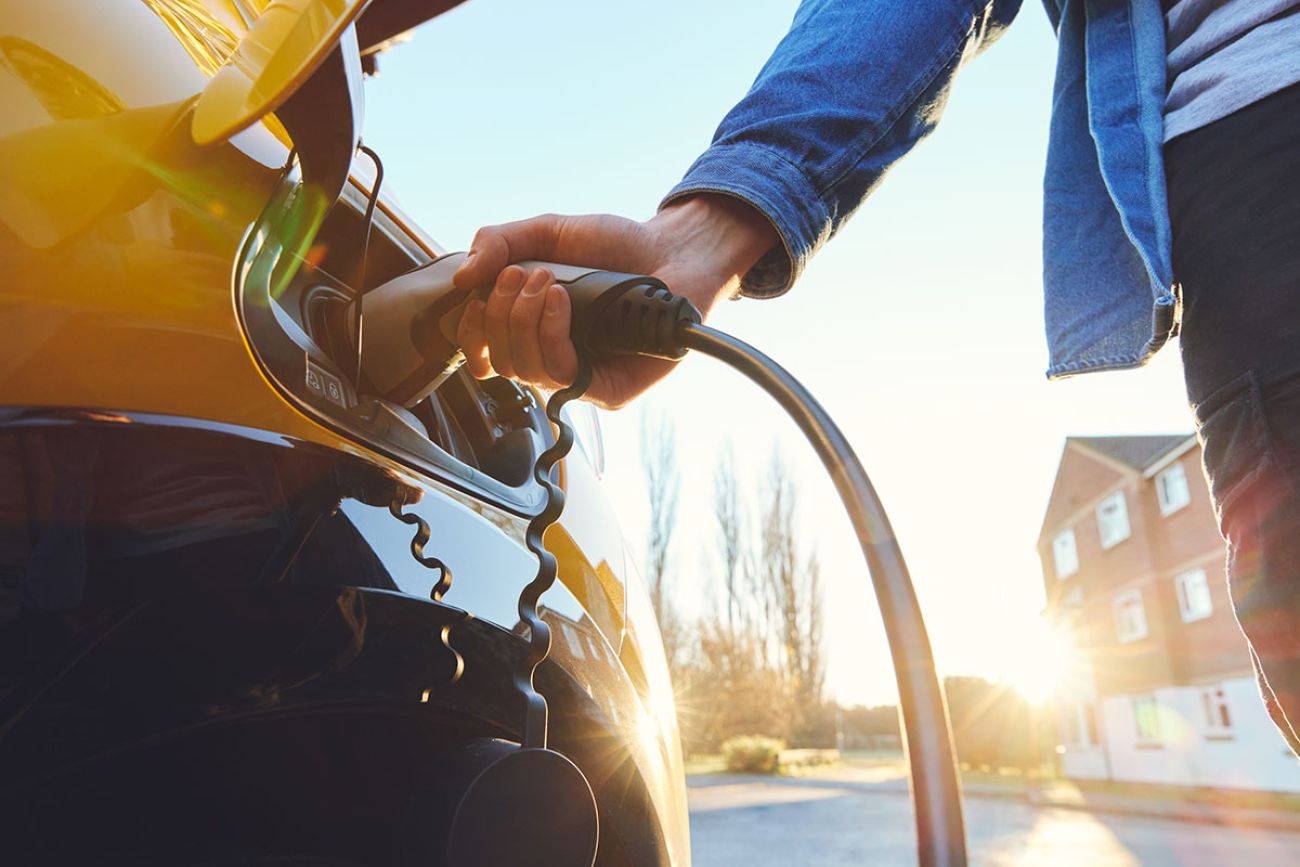Report: Michigan still lags in electric vehicle charging stations

- A report shows there is a demand to add more fast charging stations as some Michigan drivers switch to electric vehicles
- The state received federal funding to create more charging stations
- Michigan is below the national average for implementing more fast charging stations
Drivers are still taking a hit at the pumps as gas prices haven’t returned to what they were pre-pandemic, but those who drive hybrid or electric vehicles have an even harder time simply trying to find a place to “fuel” their cars.
That is according to a new report.
Michigan is slightly below the national average in terms of having enough electric charging stations. According to the report by the Anderson Economic Group, the state currently has 200 public DC fast charging stations, four of them were added this year. In 2022 there were 152, a 29 percent increase from the prior year. Nationally, the number of DC fast charging stations increased by 33 percent that year.
Related:
- Rural Michigan schools are considering electric school buses with EPA cash
- John Rakolta Jr.: Michigan’s future is on the line as cars shift to electric
- Used car prices are falling, but ‘seller’s market’ likely to last for years
Most of the DC fast charging stations, which can charge a vehicle from 20 percent to 80 percent in 30 minutes, are concentrated in the lower peninsula, especially in areas like Detroit, Ann Arbor, Lansing and Grand Rapids, the report concluded. There are only eight of these stations spread across the upper peninsula.
Electric vehicles typically come with a Level 1 charger, which can take three or more days to charge. These chargers can plug into an outlet like any other charger. A Level 2 charger, which can charge an electric vehicle in six hours, can be purchased and needs to be installed in one’s home. These can cost between $300 and $1000.
“Some areas will likely be prioritized before other areas, but we always want to look at not just where people live … but also where their needs are, where they travel, where they go for work and their recreational needs,” said Cristina Benton, Ph.D., director of marketing and industry analysis for Anderson Economic Group, which produced the report.
Of the 7 million Michigan residents who drive, over 17,000 drove electric vehicles as of the end of December 2021, the U.S. The Department of Energy reported. Although most people haven’t made the switch to electric vehicles, drivers who have are in need of close and convenient access to charging stations.
Clifford Johnon, 62 and from Ann Arbor bought a Level 2 charger for his hybrid vehicle for the convenience of being able to “wake up with a full tank of gas,” he said.
“I have never been tempted to plug my car in a charging station because we only use it for local driving. There are occasions when you need to drive farther and there are people that communte further and that won’t do.”
Johnson, who would like to get a fully electric vehicle, said hybrid cars are good for people transitioning because if they happen to not have a charging station nearby, the car can still run on gas.
While electric vehicles usually have a smaller carbon footprint than gasoline vehicles, according to the Environmental Protection Agency, they can present other challenges. Only 16% of Michigan’s population lives within a 10-minute drive of a DC fast charging station, compared to nearly 90% of residents who live within a 10-minute round trip of a gas station, Benton said.
The Biden administration announced last year that Michigan would receive $16.3 million to build charging stations as part of his $5 billion infrastructure plan. The state is expected to receive $110 million for funding over the next five years.
“The network of gas stations took almost a century to develop to where it is right now and with electric vehicles we are looking at improving the penetration of electric vehicles but we do need to be patient,” Benton said.
Business Watch
Covering the intersection of business and policy, and informing Michigan employers and workers on the long road back from coronavirus.
- About Business Watch
- Subscribe
- Share tips and questions with Bridge Business Editor Paula Gardner
Thanks to our Business Watch sponsors.
Support Bridge's nonprofit civic journalism. Donate today.
See what new members are saying about why they donated to Bridge Michigan:
- “In order for this information to be accurate and unbiased it must be underwritten by its readers, not by special interests.” - Larry S.
- “Not many other media sources report on the topics Bridge does.” - Susan B.
- “Your journalism is outstanding and rare these days.” - Mark S.
If you want to ensure the future of nonpartisan, nonprofit Michigan journalism, please become a member today. You, too, will be asked why you donated and maybe we'll feature your quote next time!




